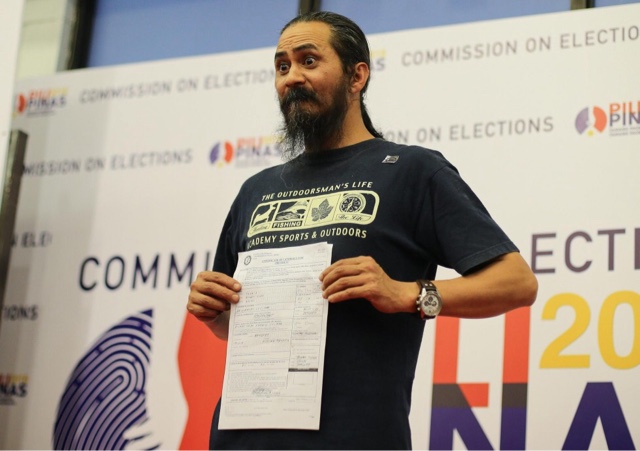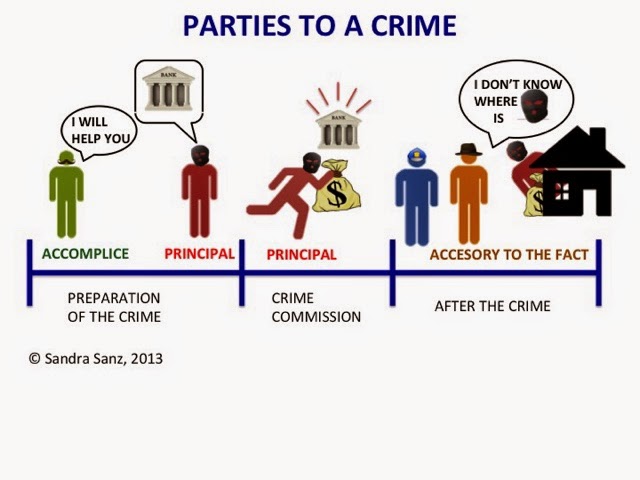Nuisance Candidates... Here's how to declare them?
 |
| A photo of Archangel Lucifer, one of the 130 hopefules vying for Philippine President in 2016 Elections taken from www.scmp.com |
For information, there are 130 hopefuls filed their Certificates of Candidacy (COCs) for Philippine President in the May 2016 Elections. It is considered as one of the 'record-breaker' according to the Commission on Elections (COMELEC).
The COMELEC has the ministerial duty to accept the COC of any person vying for any position. It has no power, based on its own judgment, to say that a certain candidate is not qualified to file a COC of a certain position. Its act is purely ministerial and not discretionary one.
The Supreme Court of the Philippines has clearly demarcated the difference between discretionary and ministerial act in Mallari versus Banco Filipino Savings & Mortgage Bank, G.R. No. 157660, August 29, 2008. Thus:
"The distinction between a ministerial and discretionary act is well delineated. A purely ministerial act or duty is one which an officer or tribunal performs in a given state of facts, in a prescribed manner, in obedience to the mandate of a legal authority, without regard to or the exercise of his own judgment upon the propriety or impropriety of the act done. If the law imposes a duty upon a public officer and gives him the right to decide how or when the duty shall be performed, such duty is discretionary and not ministerial. The duty is ministerial only when the discharge of the same requires neither the exercise of official discretion or judgment."
However, the COMELEC may, at any time before the election, motu proprio, declare a candidate as a nuisance candidate subject to an opportunity to be heard.
Motu proprio means on its own initiative or on its motion, the COMELEC may declare a candidate a nuisance candidate.
The power of the COMELEC to refuse, to give due course to or to cancel motu proprio, a certificate of candidacy is founded in the 1987 Philippine Constitution particularly in Section 2 of Article IX-C which is:
"The Commission on Elections shall exercise the following powers and functions:
1. Enforce and administer all laws and regulations relative to the conduct of an election, plebiscite, initiative, referendum, and recall."
The pertinent law in this case is Section 69 of Batas Pambansa Blg. 881 or the Omnibus Election Code, which provides:
"Sec. 69. Nuisance candidates. - The Commission may motu proprio or upon a verified petition of an interested party, refuse to give due course to or cancel a certificate of candidacy if is is shown that said certificate has been filed to put the election process in mockery or disrepute or to cause confusion among the voters by the similarity of the names of the registered candidates or by other circumstances or acts which clearly demonstrate that the candidate has no bona fide intention to run for the office for which the certificate of candidacy has been filed and thus prevent a faithful determination of the true will of the electorate."
COMELEC Resolution No. 9523 which was posted on the COMELEC website on September 25, 2012 provides the proceedings against nuisance candidates, to wit:
Rule 24 - Proceedings Against Nuisance Candidates
Section 1. Grounds. — Any candidate for any elective office who filed his certificate of candidacy to put the election process in mockery or disrepute or to cause confusion among the voters by the similarity of the names of the registered candidates or who by other acts or circumstances is clearly demonstrated to have no bona fide intention to run for the office for which the certificate of candidacy has been filed, thus preventing a faithful determination of the true will of the electorate, may be declared a nuisance candidate, and his certificate of candidacy may be denied due course or may be cancelled.
Section 2. Who May File Petition to Declare a Candidate as Nuisance Candidate. — Any registered candidate for the same position may file a verified Petition to declare a candidate as a nuisance candidate.
Section 3. Period to File the Petition. — The Petition shall be filed personally or through an authorized representative, within five (5) days from the last day for the filing of certificates of candidacy. In case of a substitute candidate, the Petition must be filed within five (5) days from the time the substitute candidate filed his certificate of candidacy.
Section 4. Motu Proprio Cases. — The Commission may, at any time before the election, motu proprio, declare a candidate as a nuisance candidate subject to an opportunity to be heard.
Section 2. Who May File Petition to Declare a Candidate as Nuisance Candidate. — Any registered candidate for the same position may file a verified Petition to declare a candidate as a nuisance candidate.
Section 3. Period to File the Petition. — The Petition shall be filed personally or through an authorized representative, within five (5) days from the last day for the filing of certificates of candidacy. In case of a substitute candidate, the Petition must be filed within five (5) days from the time the substitute candidate filed his certificate of candidacy.
Section 4. Motu Proprio Cases. — The Commission may, at any time before the election, motu proprio, declare a candidate as a nuisance candidate subject to an opportunity to be heard.
In 2010 Presidential Elections, as reported in media, out 99 hopefuls who filed their COCs for President, only 10 were allowed by the COMELEC, including the then Senator and now President Benigno S. Aquino III, to run for the presidency.
So as expected, not all 130 hopefuls shall be allowed to run for the presidency. It shall be streamlined in the proceedings to be conducted by the COMELEC.
Sources: http://www.rappler.com/nation/politics/elections/2016/109574-philippines-president-candidates-130-record, http://www.comelec.gov.ph/?r=Archives/RegularElections/2013NLE/Resolutions/res9551, http://www.comelec.gov.ph/?r=References/RelatedLaws/RulesOfProcedures/res9523 and http://www.lawphil.net/judjuris/juri2008/aug2008/gr_157660_2008.html.


Comments
Post a Comment